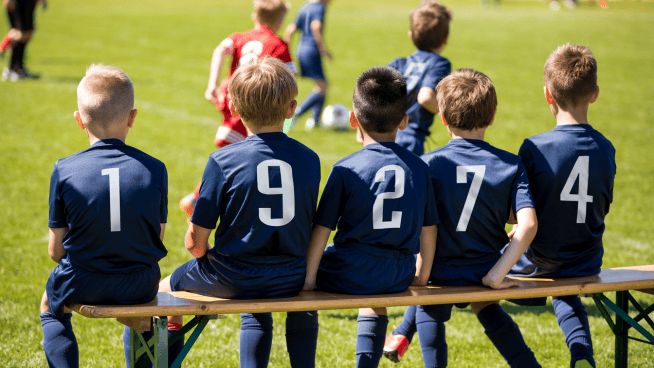How Athletes With Diabetes Can Follow a Performance Diet
Many athletes with diabetes are cautious about exercise, fearing a drop in their blood sugars. However, by eating properly and monitoring your portions, you will be able to maintain sufficient blood sugar levels and continue to improve your performance. Educate yourself on how diabetes affects you as an athlete, and follow the steps below to control your disease and get the most out of your workouts.
How Diabetes Affects Athletes
Insulin is a hormone produced by the body to break down glucose and use it as fuel. It also promotes the storage of glycogen for recovery. People with Type 1 diabetes are unable to produce insulin; therefore, they require insulin injections. Timing your meals around exercise and insulin therapy while consuming correct amounts of carbohydrates and protein will allow you to train with intensity and succeed in your sport.
Check Your Sugars
Always check your sugars before exercise. Normal blood glucose levels range between 80 mg/dl and 120 mg/dl. If they are too low (70 or lower), eat a snack and digest it before beginning your workout. Athletes who struggle with diabetes should always carry carbohydrate-rich foods, such as hard candies, fruits and granola bars, to maintain sufficient blood sugar levels.
Time Your Meals
For a diabetes diet, what you eat is important, but so is when you eat. Skipping meals or going too long between meals can cause blood sugars to drop and then rapidly spike. Have a carbohydrate-rich meal or snack two to three hours before exercise. If the session lasts longer than one hour, plan to snack or consume a sports drink with calories during training. After your workout, eat something that has both carbohydrates and protein to prevent low blood sugars. Check your blood sugar levels following exercise to make sure they are in the desired range.
Counting Carbohydrates
Carbohydrates are the sugars in food that translate to energy in our bodies. Eating too many or too few grams of carbohydrates can affect your blood sugars and, thus, your performance. By controlling the amount of carbohydrate you consume at each meal and snack, you can balance out the rest of your plate with protein and healthy fats. According to the American Diabetes Association, the recommendations for athletes include:
- Carbohydrate consumption ranging from 6 to 10 g/kg of body weight per day to maintain blood glucose and replace muscle glycogen during activity
- Protein consumption ranging from 1.2 to 1.4 g/kg of body weight per day for maintenance of muscle mass
- Fat consumption ranging from 20 to 25 percent of total daily calories, for energy and essential fatty acids
Specific recommendations are determined by age, gender, energy expenditure and activity. Consult your physician for specific recommendations.
Importance of Hydration
Fluid loss can impede your ability to perform well. To prevent dehydration, drink enough fluid to match your sweat rate. Staying hydrated is very important in helping you maintain peak performance during a workout or competition. (Learn more about hydration.)
Tell People Who Need to Know
It is very important to tell teammates, coaches and trainers if you have diabetes, so they’re aware of the situation and know what to do if your blood sugar levels crash. Discuss your activity level and food intake with your health care provider to accurately time medications at the correct dosage, especially if you are taking insulin.
There’s no reason to let diabetes prevent you from accomplishing your athletic goals. It never held back Pro Bowl quarterback Jay Cutler, Olympic gold medal swimmer Gary Hall Jr. or NBA center Chris Dudley. Create a plan for your meals and injections, and continue to monitor your health as you train for the next level.
Sources:
- Jensen, Christoper D. “Sports Nutrition for Athletes with Type 1 Diabetes: Interplay of Diet, Insulin Therapy, and Exercise”. Power Bar. http://www.powerbar.com/articles/372/part-1-dietary-needs-for-athletes-with-type-1-diabetes.aspx
- “Nutrition for Athletes with Diabetes”. The Cleveland Clinic. http://my.clevelandclinic.org/disorders/diabetes/sh_nutrition.aspx
- Hornsby, Guyton W and Chetlin, Robert D. “Management of Competitive Athletes with Diabetes”. American Diabetes Association. http://spectrum.diabetesjournals.org/content/18/2/102.full
Photo: sports.gather.com
Kait Fortunato earned her bachelor’s degree in dietetics and completed her internship through the University of Maryland. She focuses on individualized nutritional recommendations for athletes of all ages and activity levels, and she is an active member of the Sports Dietetic Practice Group of the Academy of Nutrition and Dietetics. Visit dietitianindc.blogspot.com for running and recipe updates.
RECOMMENDED FOR YOU
MOST POPULAR
How Athletes With Diabetes Can Follow a Performance Diet
Many athletes with diabetes are cautious about exercise, fearing a drop in their blood sugars. However, by eating properly and monitoring your portions, you will be able to maintain sufficient blood sugar levels and continue to improve your performance. Educate yourself on how diabetes affects you as an athlete, and follow the steps below to control your disease and get the most out of your workouts.
How Diabetes Affects Athletes
Insulin is a hormone produced by the body to break down glucose and use it as fuel. It also promotes the storage of glycogen for recovery. People with Type 1 diabetes are unable to produce insulin; therefore, they require insulin injections. Timing your meals around exercise and insulin therapy while consuming correct amounts of carbohydrates and protein will allow you to train with intensity and succeed in your sport.
Check Your Sugars
Always check your sugars before exercise. Normal blood glucose levels range between 80 mg/dl and 120 mg/dl. If they are too low (70 or lower), eat a snack and digest it before beginning your workout. Athletes who struggle with diabetes should always carry carbohydrate-rich foods, such as hard candies, fruits and granola bars, to maintain sufficient blood sugar levels.
Time Your Meals
For a diabetes diet, what you eat is important, but so is when you eat. Skipping meals or going too long between meals can cause blood sugars to drop and then rapidly spike. Have a carbohydrate-rich meal or snack two to three hours before exercise. If the session lasts longer than one hour, plan to snack or consume a sports drink with calories during training. After your workout, eat something that has both carbohydrates and protein to prevent low blood sugars. Check your blood sugar levels following exercise to make sure they are in the desired range.
Counting Carbohydrates
Carbohydrates are the sugars in food that translate to energy in our bodies. Eating too many or too few grams of carbohydrates can affect your blood sugars and, thus, your performance. By controlling the amount of carbohydrate you consume at each meal and snack, you can balance out the rest of your plate with protein and healthy fats. According to the American Diabetes Association, the recommendations for athletes include:
- Carbohydrate consumption ranging from 6 to 10 g/kg of body weight per day to maintain blood glucose and replace muscle glycogen during activity
- Protein consumption ranging from 1.2 to 1.4 g/kg of body weight per day for maintenance of muscle mass
- Fat consumption ranging from 20 to 25 percent of total daily calories, for energy and essential fatty acids
Specific recommendations are determined by age, gender, energy expenditure and activity. Consult your physician for specific recommendations.
Importance of Hydration
Fluid loss can impede your ability to perform well. To prevent dehydration, drink enough fluid to match your sweat rate. Staying hydrated is very important in helping you maintain peak performance during a workout or competition. (Learn more about hydration.)
Tell People Who Need to Know
It is very important to tell teammates, coaches and trainers if you have diabetes, so they’re aware of the situation and know what to do if your blood sugar levels crash. Discuss your activity level and food intake with your health care provider to accurately time medications at the correct dosage, especially if you are taking insulin.
There’s no reason to let diabetes prevent you from accomplishing your athletic goals. It never held back Pro Bowl quarterback Jay Cutler, Olympic gold medal swimmer Gary Hall Jr. or NBA center Chris Dudley. Create a plan for your meals and injections, and continue to monitor your health as you train for the next level.
Sources:
- Jensen, Christoper D. “Sports Nutrition for Athletes with Type 1 Diabetes: Interplay of Diet, Insulin Therapy, and Exercise”. Power Bar. http://www.powerbar.com/articles/372/part-1-dietary-needs-for-athletes-with-type-1-diabetes.aspx
- “Nutrition for Athletes with Diabetes”. The Cleveland Clinic. http://my.clevelandclinic.org/disorders/diabetes/sh_nutrition.aspx
- Hornsby, Guyton W and Chetlin, Robert D. “Management of Competitive Athletes with Diabetes”. American Diabetes Association. http://spectrum.diabetesjournals.org/content/18/2/102.full
Photo: sports.gather.com
Kait Fortunato earned her bachelor’s degree in dietetics and completed her internship through the University of Maryland. She focuses on individualized nutritional recommendations for athletes of all ages and activity levels, and she is an active member of the Sports Dietetic Practice Group of the Academy of Nutrition and Dietetics. Visit dietitianindc.blogspot.com for running and recipe updates.












